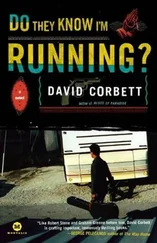Waxman and Abatangelo were halfway up the escalator when the mariachi band abruptly broke off its tune and launched into a distinctive fanfare. The crowd erupted in a riotous cheer. Rolando Moreira, fresh from his speech, made his entrance, waving to one and all. Bodyguards stood to either side.
Even from such a distance, Abatangelo gained a distinctive impression about the man. He had a vigorous balding portliness, the sort one associated with sybaritic wealth; his features were strong and handsome, a classic jaw, a sculpted moustache, lively eyes. For all this there was something irresolute about him, as though his life was a continuous act of seductive self-deceit. A patrician song-and-dance man.
“Can you get a good shot from the mezzanine?” Waxman asked, but Abatangelo had already removed his lens cap and positioned himself along the brass rail, facing the entrance. Armed with a 28-150 mm zoom, he engaged the long end of the lens to get as much of a close-up as he could.
The mariachi band broke into a waltz and the crowd entreated Don Rolando to come down and dance with his daughter. With a flourish, the father removed his overcoat, revealing a white tuxedo with tails, a red carnation dotting his lapel. This elicited even greater enthusiasm from the crowd. Don Rolando spread his arms, searching the crowd for his daughter, and shortly, through a divide in the revelers amid taunting whispers, Larissa Moreira made way toward her father.
She was a tall, awkward girl, similar in features to her mother, who sat in a circle of aunts and matrons at the far end of the lobby. The mother wore a modest gown of yellow watered silk, with a broad red-ribboned sash. Her hair was pulled back and fastened with a mantilla in the old style, and she regarded her daughter’s advance toward her husband with a demeanor of bemused retreat.
The women in her circle shared her attitude of reserve, each woman smiling to convey respect, not indulgence. The priest who’d served the quinceañera Mass sat with them, a slender, fresh-faced man with thinning hair, still wearing his vestments and nursing a glass of the children’s punch. Clustered together on a sofa and a semicircle of folding chairs, and surrounded by presents not yet opened, the doña and her entourage and the lone priest formed a tight-knit pocket of forbearing sobriety.
Larissa Moreira reached the edge of the crowd, stepped forward to the dais that formed the lobby entrance and offered a reverent if ungainly curtsy to her father. Her gown was hooped and frilled, the brocaded bodice tight and sequined, with puffed sleeves erupting from the shoulders like wings. She wore a gold tiara in her auburn hair. Her father extended both hands to her and descended, took her in his arms and, to the sighs and cheers of the crowd, commenced the traditional waltz.
“Pops and Pookie cut a rug,” Abatangelo remarked to Waxman as he rewound his first roll of film. “Should provide some contrast to the shots we took of Frank.”
“I don’t see him,” Waxman responded, surveying the crowd.
“He’s right there.”
“No, I mean Facio,” Waxman said. “The security chief. I don’t see him.”
The father-daughter waltz came to a triumphant end, another round of cheers erupted and Don Rolando led his daughter to where her mother was seated. It was time to open presents.
A handful of reporters, the group who’d covered Moreira’s speech, straggled in, shaking off the rain. One of them consulted a bellman, who promptly pointed upward to the mezzanine. Following the direction of his hand, Abatangelo spotted the entrance of the mezzanine lounge.
“Let’s head in to the bar, Wax. Your friends in the press, maybe they’ll have something to tell us.”
Abatangelo led him inside and took a seat in the nearest booth. Waxman approached the bar and ordered two coffees. The bartender, an old obrero who sang to himself, nodded his acknowledgment of the order. Waxman returned to the booth, checking his watch, and shortly the bartender arrived, delivering their coffees. Humming, he waved off their money and turned back to the bar. Waxman poured in his cream and watched it cloud as the reporters from Moreira’s speech trounced noisily into the lounge. There were two women and three men, none of them older than thirty. Waxman eyed them with interest.
“You see the woman at the head of the pack,” Waxman whispered to Abatangelo. “Her name is Eloise Beaulieu. Or at least that’s the name she uses for attribution. She used to be a movie reviewer for one of the trashier weeklies in town.” The woman was speaking loud and fast, gathering everyone forward to the bar, squirming her hips onto a stool and ordering margaritas for all. “Excuse me a minute,” Waxman said. He left Abatangelo in the booth.
As Waxman approached the bar, the identities of the others came to him. The second woman, a plump assertive type with short-cropped hair, wrote an op-ed column for a Contra Costa daily. Her name was Gayle something, she catered to right-leaning libertarian views. Two of the men were stringers he knew from parties here and there, Smathers and Koch were their names; the third man, from what Waxman was able to overhear on approach, was named Holleran and had come down from Sacramento. Intent on their margaritas, they did not see Waxman closing from behind. One of the stringers, the one named Smathers, said, “You realize, Bing Crosby is the man responsible for bringing tequila to the States.”
“Bing Crosby and Phil Harris,” Koch, the other stringer, corrected. “And it was agave tequila. Like Herradura and Sauza. Not the stuff they put in these.”
Smathers shrugged. “So spank me.”
“I’d rather spank the little princess down there.”
“That little princess,” Holleran, the man from Sacramento, said, “will be wearing that same dress a year from now. Except the fit’ll be a bit more snug.”
“You mean she’ll be at the altar,” Eloise Beaulieu said.
“Barefoot,” Smathers said.
“The other half of barefoot.”
The men laughed, the women didn’t. Above them, the blades of a brass fan rotated drowsily. The bartender freshened their glasses. Waxman cleared his throat. Eloise was the first to recognize him.
“Berty, my God. What are you doing here?”
Smathers, hearing Waxman’s name, snapped to. “Bert Waxman. You did that piece on the hit out near Antioch today.” Waxman guardedly detected intimations of praise in this remark. Then Smathers added: “Man has to fall down drunk in just the right doorway to get a story like that to trip over him.”
Waxman asked, “You folks cover Moreira’s speech?”
“Whoa, Berty, whoa,” Eloise said. “My question came first. You working the same story that appeared this morning?”
“You’ll read all about it,” Waxman replied. “I was wondering, the speech, was there a release given out?”
“Here,” Holleran said, removing from his pocket a press release folded into sections. “Take mine.”
“No,” Eloise said, snatching it from his hand. “First, I want to know, Berty. Why. Are. You. Here.”
“I’m going downstairs,” Holleran announced, sliding from his stool. “Fetch me some vittles.”
“No spanking,” Smathers said.
“It’s a birthday!”
“Only Daddy gets to spank.”
“Well, damn.”
Holleran exited waving absently to one and all, even Abatangelo, whom he spotted on his way out. Waxman made one halfhearted grab for the press release but Eloise snatched it away.
“Is this Moreira guy implicated in the stuff I read today?” Eloise asked.
Smathers and Koch were interested, too, now. They studied Waxman with waggling eyebrows and out-with-it smiles.
Waxman said, “There were some squatters on the property around the time of the killings. They got scared off by the police and, rumor has it, they fled up here. I lost their trail. I thought Señor Moreira, or somebody who works for him, might be able to help.”
Читать дальше












